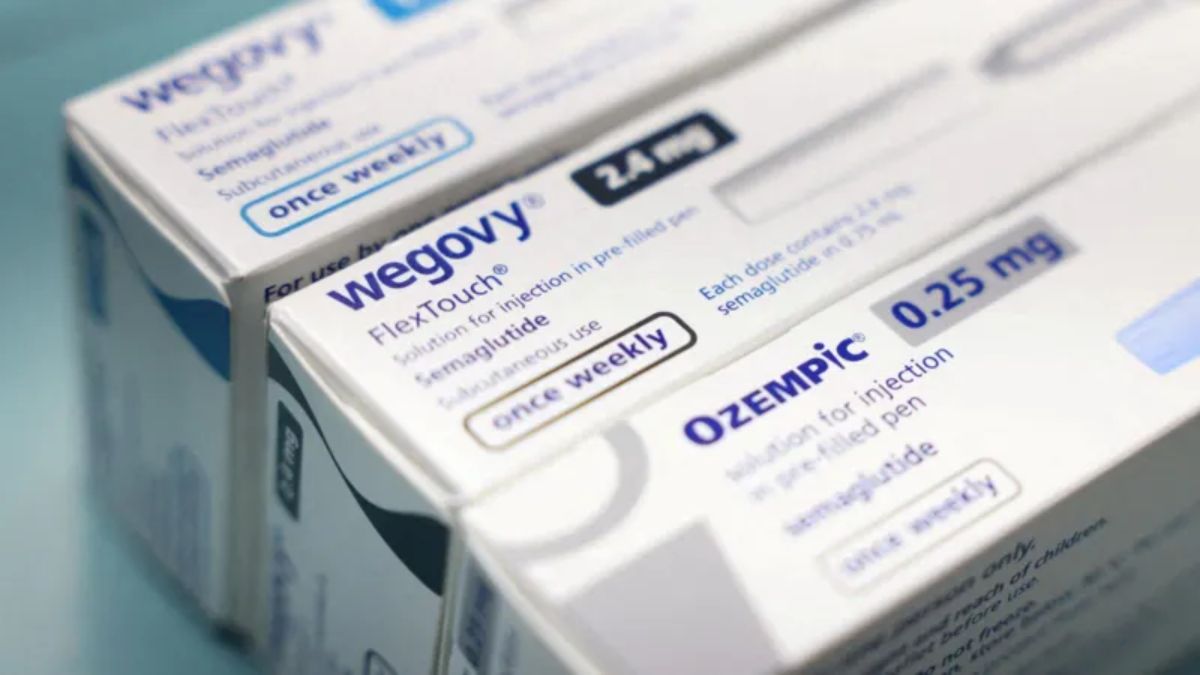Ozempic, the popular weight-loss drug, might have an unexpected new use. A recent study has found that it could help reduce alcohol cravings and consumption.
Published in JAMA Psychiatry on Wednesday, the research provides the strongest evidence yet that semaglutide—the active ingredient in Ozempic and the weight-loss drug Wegovy—could genuinely help individuals struggling with alcohol addiction drink less and crave alcohol less frequently.
Notably, this was the first-ever randomised controlled trial examining semaglutide’s impact on alcohol consumption and it did leave some promising results.
Here’s what the study uncovered.
The study
The research, conducted at the University of North Carolina-Chapel Hill School of Medicine, focused on 48 individuals diagnosed with alcohol-use disorder—a condition marked by difficulty in controlling alcohol consumption.
Participants qualified for the study if they had consumed more than seven drinks per week for women or 14 for men in the past month, along with at least two heavy drinking episodes—defined as four or more drinks at a time for women and five or more for men.
Half of the participants received low doses of semaglutide, while the other half were given placebo shots. To observe their drinking behaviour, they were placed in a lab setting designed to resemble a living room, with a TV and a fully stocked bar featuring their preferred alcoholic beverages.
“They were free to drink as much as they wanted to, up to a limit we set for safety,” Dr Christian Hendershot, director of clinical research at the UNC Institute for Addiction Science and the study’s lead author, told CNN. Every 30 minutes, a study staff member would check their breath alcohol levels and administer questionnaires.
Participants also recorded their daily alcohol intake over a nine-week period. The researchers then compared the data to evaluate the effects of semaglutide.
What did the study find?
At the beginning of the study, there was little difference in alcohol consumption between those who took semaglutide and those who received a placebo.
However, by the second month, a clear pattern emerged—participants taking semaglutide were drinking nearly 30 per cent less on the days they consumed alcohol, compared to just a 2 per cent reduction in the placebo group.
The study also found that those on semaglutide drank fewer drinks per day overall, had fewer heavy drinking episodes, and reported reduced alcohol cravings.
“It’s one of the first trials that’s a randomised, controlled trial that have said, ‘You know what, there is evidence that people will drink less if they’re taking this medicine,’” Dr Daniel Drucker, a professor of medicine at the University of Toronto and a pioneer in GLP-1 research, told CNN.
These findings align with previous research. A study published last May, which analysed a large database of medical records, found similar results. It showed that people with both alcohol use disorder (AUD) and either obesity or Type 2 diabetes who took Ozempic or similar drugs had a 50% lower rate of binge drinking compared to those not on the medication.
The study was published in the journal Addiction.
“These results add to a lot of promising evidence that we might eventually be able to utilise these treatments for substance use disorder,” Dr. Christian Hendershot, who was not involved in that study, told NPR.
How does Ozempic help curb drinking?
For years, scientists have known that the brain mechanisms controlling food-seeking behaviour overlap with those that drive addiction, said Dr. Lorenzo Leggio, clinical director at the National Institute of Drug Abuse, in an interview with NPR.
Although the exact way Ozempic affects alcohol consumption isn’t fully understood, growing evidence suggests that it influences the brain in ways that reduce cravings—not just for food but also for addictive substances.
Additionally, animal studies indicate that drugs related to semaglutide may inhibit the release of dopamine triggered by alcohol, which could reduce the motivation to drink.
“I think it’s going to turn people who struggle with their ability to control their drinking into, potentially, people who can control their drinking,” Joseph Schacht, an associate professor of psychiatry at the University of Colorado, told The New York Times.
More data needed
While the findings are encouraging, the study comes with limitations. The sample size was small, and the trial lasted only a short period, meaning larger and longer studies are needed to confirm the results.
Dr Anton, an alcohol-use disorder (AUD) researcher, pointed out that the study participants differed from those who typically seek treatment for AUD. There were more women than men—an unusual demographic for AUD trials—and the participants tended to have a higher-than-average weight, which is also not typical of most individuals seeking treatment for alcohol dependence.
Additionally, he noted that people who enter AUD treatment programs generally consume more alcohol than those in the study—typically seven to eight drinks per day, often more, on most days.
Dr Simmons, along with Dr Hendershot, Dr Schacht and other researchers, have warned in a scientific journal that there is not enough data yet to prescribe the drug for alcohol use disorder.
“I’m optimistic, don’t get me wrong,” Dr Simmons told The New York Times. “But I just don’t feel comfortable saying that patients should seek out these medications for addiction yet.”
With input from agencies

)





